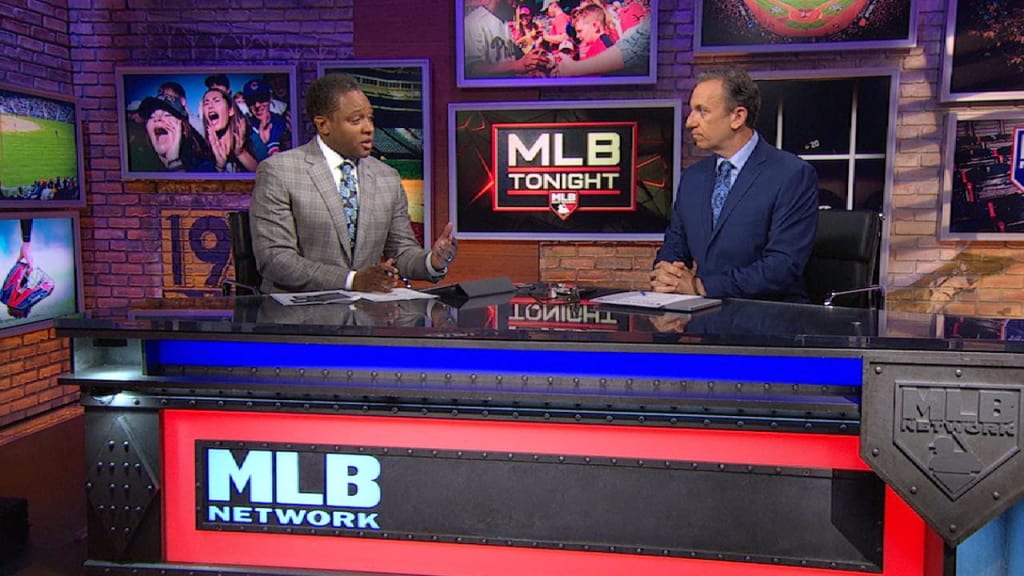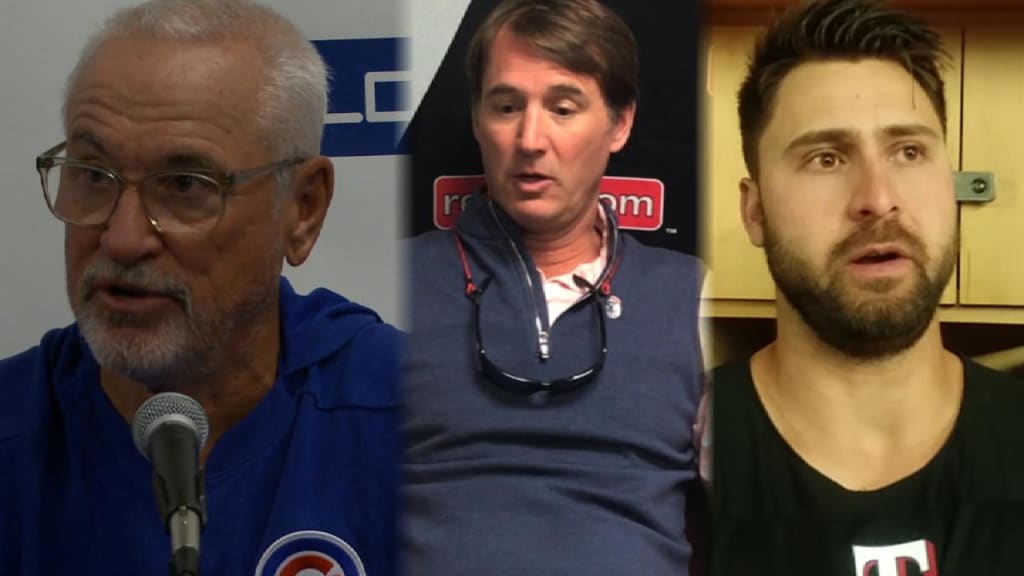Rule changes coming this year and next
This browser does not support the video element.
Major League Baseball and the MLB Players Association have negotiated a series of rule changes that will go into effect over the next two seasons. Subject to ratification by all 30 clubs, the changes will affect everything from reliever roles to roster size to the way trades are conducted to the way All-Star rosters are constructed.
Though the changes will reduce the amount of down time in games by limiting pitching changes, mound visits and the amount of time between innings, the two sides have agreed that a pitch clock will not be added during the course of the current Basic Agreement, which runs through 2021. However, MLB and the MLBPA have agreed to meet and discuss a broader renegotiation and extension of the Basic Agreement.
Here is a rundown of the new rules and when they go into effect:
CHANGES EFFECTIVE IN 2019
Inning breaks: Subject to discussions with broadcast partners, inning breaks will be reduced from 2:05 to 2:00 in local games and from 2:25 to 2:00 in national games. The Commissioner’s Office retains the right to further reduce the breaks to 1:55 in local and national games for the start of the 2020 season.
Trade Deadline: The waiver trade period will be eliminated. The July 31 Trade Deadline will be the only deadline. Players may still be placed and claimed on outright waivers after July 31, but trades will no longer be permitted after that date.
This browser does not support the video element.
All-Star Game: Fan voting will be conducted in two rounds -- a “primary round” that mirrors the All-Star voting of old, followed in late June or early July by an “Election Day” in which the top three vote-getters at each position in each league during the primaries will be voted on by fans in a prescribed time period to determine the All-Star starters.
As far as the game itself is concerned, the 10th inning -- and all subsequent innings -- of All-Star Games that go into extra innings will begin with a runner on second base.
Home Run Derby: Total player prize money for the Home Run Derby will be increased to $2.5 million. The winner of the Home Run Derby will receive $1 million.
Mound visits: The maximum number of mound visits per team will be reduced from six to five per game. MLB had instituted an initial mound-visit limitation prior to the 2018 season.
Additionally, MLB and the MLBPA will form a joint committee to study other potential rule changes.
This browser does not support the video element.
CHANGES EFFECTIVE IN 2020
Active roster provisions: The roster size from Opening Day through Aug. 31 will increase from 25 to 26 (with the minimum number of active players rising from 24 to 25, and roster sizes for doubleheaders rising from 26 to 27).
The 40-man active roster for September will be eliminated. From Sept. 1 through the end of the regular season, all clubs will carry 28 players.
Furthermore, the number of pitchers a club can carry on the active roster will be capped at a certain number, to be decided by the aforementioned joint committee. To adhere to that rule, clubs will have to designate each of their players as either a pitcher or a position player prior to each player’s first day on the active roster for a given season. That designation cannot change for the remainder of the season. Position players will not be allowed to pitch except in the following scenarios:
• They are designated as a “Two-Way Player.” A player can only qualify for this designation if he accrues at least 20 Major League innings pitched and at least 20 Major League games started as a position player or designated hitter (with at least three plate appearances in each of those games) in either the current or the prior season.
• Extra innings.
• In any game in which his team is losing or winning by more than six runs when he enters as a pitcher.
Three-batter minimum for pitchers: Rule 5.10(g) will be amended to require that starting pitchers and relief pitchers must pitch to either a minimum of three batters or to the end of a half-inning, with exceptions for incapacitating injury or illness. This will effectively end the so-called “LOOGY” (left-handed one-out guy) and other specialist roles in which pitchers are brought in for one very specific matchup.
Injured list: The minimum time a pitcher spends on the injured list will be increased back to 15 days from 10, and the minimum assignment period of pitchers who are optionally assigned to the minors will increase from 10 days to 15. The IL will remain at 10 days for position players. MLB reduced the minimum injured list period from 15 days to 10 days -- for pitchers and position players -- prior to the 2017 season to reduce the incentive for teams to play shorthanded or for players having to play at less than full strength. However, teams manipulated the rule change to rotate relievers on and off their active rosters, thereby maintaining a full stash of rested arms, which resulted in more pitching changes.
This browser does not support the video element.

